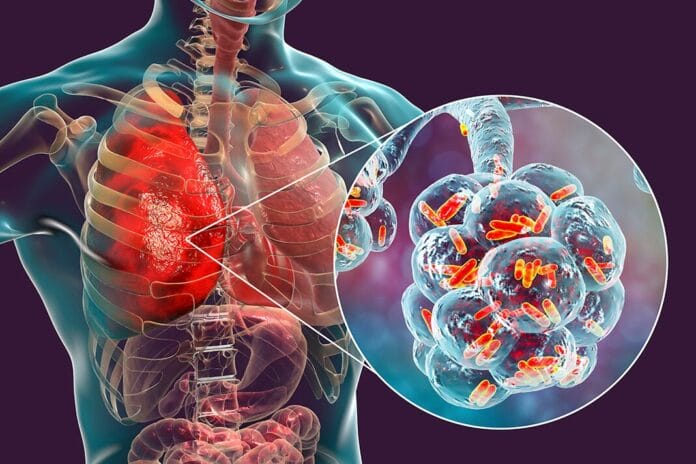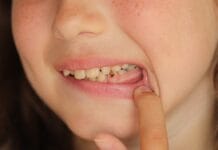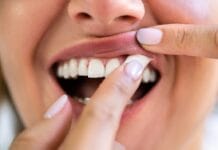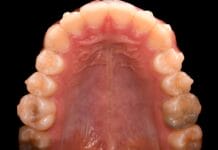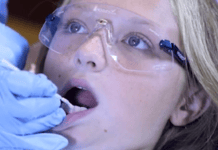Researchers found a cost-effective tool that could potentially reduce the incidence of pneumonia among hospitalized patients, and it’s not your typical medical device – it’s a toothbrush. A study conducted by a team from Brigham and Women’s Hospital set out to investigate whether daily toothbrushing for hospitalized patients could lead to a decrease in hospital-acquired pneumonia and related complications.1
Hospital-acquired pneumonia occurs when bacteria in the mouth enter a patient’s airways, leading to a lung infection. Patients who are frail or have compromised immune systems are particularly susceptible to developing hospital-acquired pneumonia during their hospitalization. However, establishing a daily toothbrushing routine can help reduce the bacterial load in the mouth, potentially lowering the risk of hospital-acquired pneumonia.1
The Study
The research team conducted a systematic review and meta-analysis to ascertain the association between daily toothbrushing and hospital-acquired pneumonia. Secondary outcomes analyzed included hospital and intensive care unit (ICU) mortality, duration of mechanical ventilation, the length of stay in the hospital and ICU, and the use of antibiotics.1
They searched various databases for randomized clinical trials that compared the impact of regular oral care with toothbrushing versus oral care without toothbrushing on the incidence of hospital-acquired pneumonia and associated outcomes. Findings were pooled from 15 randomized trials worldwide, encompassing 10,742 patients. After shrinking the population, 2,786 patients were included in the analysis.1
The Results
The analysis revealed an association between daily toothbrushing and a significantly decreased risk of hospital-acquired pneumonia and ICU mortality. Furthermore, the study found that toothbrushing among ICU patients was associated with fewer days of mechanical ventilation and shorter ICU stays.1
Most of the studies included in the review focused on the role of oral hygiene routines in adult ICU patients. Only two of the 15 studies in the analysis explored the effects of toothbrushing in non-ventilated patients. While the results are promising, the researchers are cautiously optimistic about the potential protective benefits of toothbrushing for non-ICU patients, emphasizing the need for further studies in this specific patient population.1,2
Dr. Michael Klompas, the corresponding author of the study and a hospital epidemiologist, as well as an infectious disease specialist at Brigham and Women’s Hospital, commented on the significance of their discovery, “The signal that we see here towards lower mortality is striking – it suggests that regular toothbrushing in the hospital may save lives. It’s rare in the world of hospital preventative medicine to find something like this that is both effective and cheap. Instead of a new device or drug, our study indicates that something as simple as brushing teeth can make a big difference.”2
Conclusion
The systematic review and meta-analysis indicate that daily toothbrushing is associated with significantly reduced hospital-acquired pneumonia rates, especially in patients on mechanical ventilation. It’s also associated with lower ICU mortality, shorter mechanical ventilation duration, and shorter ICU stays. This suggests the need for policies and programs promoting regular toothbrushing in hospitals.1
Dr. Klompas concluded, “The findings from our study underscore the importance of implementing an oral health regimen that includes toothbrushing for hospitalized patients. Our hope is that our study will inspire the development of policies and programs to ensure that hospitalized patients receive regular dental care. In cases where patients are unable to perform the task themselves, we recommend that a member of the patient’s care team assist.”2
Before you leave, check out the Today’s RDH self-study CE courses. All courses are peer-reviewed and non-sponsored to focus solely on high-quality education. Click here now.
Listen to the Today’s RDH Dental Hygiene Podcast Below:
References
- Ehrenzeller, S., Klompas, M. Association Between Daily Toothbrushing and Hospital-Acquired Pneumonia: A Systematic Review and Meta-Analysis. JAMA Internal Medicine. 2024; 184(2): 131-142. https://doi.org/10.1001/jamainternmed.2023.6638
- Brigham and Women’s Hospital. (2023, December 18). Toothbrushing Tied to Lower Rates of Pneumonia Among Hospitalized Patients. ScienceDaily. www.sciencedaily.com/releases/2023/12/231218125919.htm

